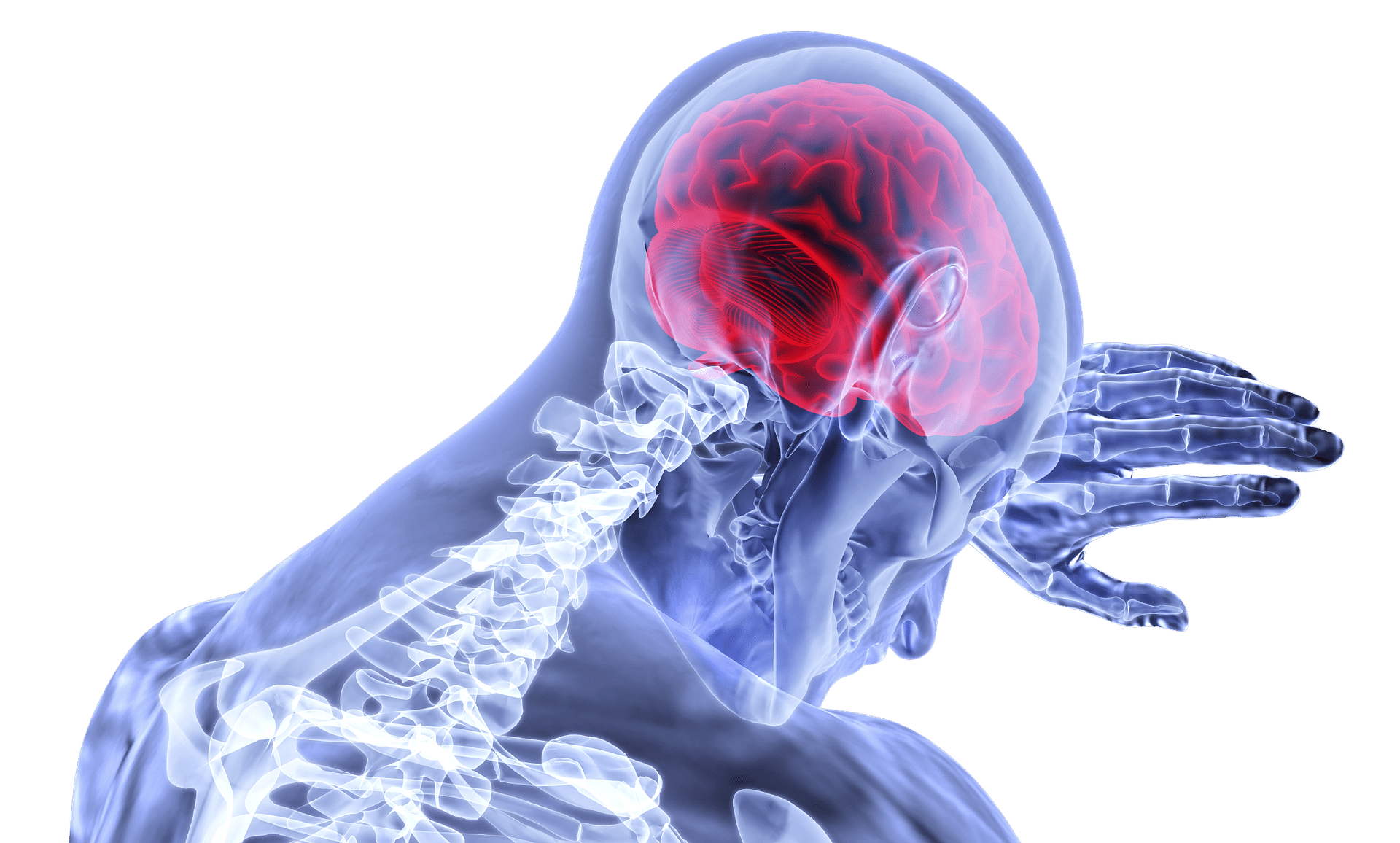There are approximately 1 million people living in the UK that are affected by the long term effects of a brain injury. In this guide, we will be looking at different types of brain injuries and their symptoms.
Types of Brain Injury
Acquired brain injuries are commonly categorised into two main types, a traumatic brain injury and non-traumatic brain injury. A traumatic brain injury is caused by something outside of the body that impacts the head, whereas a non traumatic brain injury is not caused by any external force, it is a result of conditions that disturb the normal activity of the brain. Acquired brain injuries occur at or any time after birth.
According to Headway, the brain injury association:
- In the UK during 2019-2020 there were 356,699 admissions to hospital with an acquired brain injury which is a 12% increase since 2005-2006. This equates to approximately 977 admissions per day or one admission every 90 seconds.
- In 2019-2020, males were 1.5 times more likely to be admitted than females.
- In 2019-2020, female head injuries were up 28% since 2005-2006.
Traumatic brain injuries
A traumatic brain injury is when a sudden trauma causes damage to the brain. It can be when the head suddenly and violently hits an object or when an object pierces the skull and enters the brain tissue. Even though the injury is caused by an outdoor force, it is possible to have further complications from the traumatic injury such as a lack of oxygen, increased pressure and swelling of the brain. A traumatic brain injury can be categorised as mild, moderate or severe, this depends on the extent of damage that the injury has caused to the brain.
Mild traumatic brain injury – it is estimated that 90% of traumatic brain injuries are mild. Symptoms of mild traumatic brain injuries can include dizziness, headaches, blurred vision, feeling sick and potentially losing consciousness for a small amount of time.
Moderate or severe traumatic brain injury – they may show the same symptoms as someone who has a mild traumatic brain injury but worse. They may have a headache that gets worse or does not go away, seizures, repeated sickness, confusion and not being able to wake up from sleep.
Traumatic Brain injuries can occur at any time and affect anyone, however according to the NHS, men are around twice as likely to be treated in hospital for a traumatic brain injury than women.
The people that are most at risk of traumatic brain injuries:
- Children aged 0-4
- Young adults aged 15-24
- Adults over the age of 60
- Males in any age group
Causes of traumatic brain injuries include:
- Sports injuries
- Vehicle collisions
- Falls
- Violence
Traumatic brain injuries do not often result in long-term effects, however some more serious traumatic brain injuries may result in people needing long term treatment or care.
Non traumatic brain injuries
A non traumatic brain injury is an injury that has occurred since birth. This is used to describe an injury that occurs as a result of something internal in the brain such as infections, tumours, strokes or medical negligence. If you have suffered a non traumatic brain injury, it is important that you receive urgent treatment, otherwise this could cause even more damage to the brain causing longer lasting effects.
Conditions that could cause a non traumatic brain injury:
A birth injury – unfortunately, some babies can suffer from permanent brain damage at childbirth. In some cases, they may be able to completely recover but severe cases of brain injury at birth may cause lifelong problems from the injury. Many brain injuries are caused by medical negligence, a defect or a complication.
Birth injuries can result from:
- Lack of oxygen during birth (hypoxia) – this is the most common cause of a brain injury at birth. Hypoxia can affect all organs in the body but the brain is most susceptible to harm.
- Unnoticed distress – if an unborn baby is showing symptoms of distress and they are not picked up by health care professionals then it could lead to increased risk of brain damage.
- Erb’s palsy – caused by a traumatic force downwards on the shoulder which damages the brachial plexus.
- Shoulder dystocia – this occurs when the baby’s head is delivered but the shoulder gets stuck behind the mother’s pelvic bone. This then means that there needs to be increased force when delivering the baby, potentially damaging the baby’s nerves.
- Incorrect use of instruments during delivery
Birth injuries are extremely unfortunate, however they are rare. In 2019, approximately only 0.41% of babies born suffered a brain injury at birth according to the Department of Health.
Strokes – a stroke occurs when the blood supply to part of the brain is cut off. Strokes will require urgent treatment. The sooner you receive treatment after a stroke, there is less likely to be damage. When the blood supply is restricted to the brain, it can lead to a severe brain injury. There are two main causes of a stroke:
- An ischaemic stroke is where the blood supply is stopped because of a blood clot, this is what accounts for most cases of a stroke
- A haemorrhagic stroke is where a weakened blood vessel supplying the brain bursts
There is also a related condition that is called a transient ischaemic attack, this happens when the blood supply to the brain is temporarily interrupted and can cause a mini-stroke that can last anywhere from a few minutes up to 24 hours. These attacks should also be treated urgently because it can be a warning sign that you are going to have a full stroke in the near future.
Strokes happen more than 100,000 times annually in the UK and they are the fourth single leading cause of death in the UK and they are responsible for 35,000 deaths per year.
The symptoms of strokes can be remembered with the word FAST:
- Face – the face may have dropped on one side and the person may not be able to smile
- Arms – the person may not be able to lift up both arms because of the weakness/ numbness in one arm
- Speech – their speech may be slurred
- Time – if you see these symptoms, it is time to call 999
Tumours – brain tumours happen when there is a growth of cells in the brain that multiplies in an abnormal and uncontrollable way. Brain tumours are graded from 1-4 according to how fast they grow and how likely they are to grow after treatment. There are low grade tumours, grade 1 and 2, and then there are high grade tumours, grade 3 and 4. There are over 130 different types of brain tumours, some are cancerous and others are not. According to Cancer Research UK in the UK:
- 3% of brain tumour cases were preventable in 2015.
- There were 5,456 deaths from brain tumours in 2017-2019
- 12% of people survive brain tumours for 5 or more years in 2013-2017
The symptoms of a brain tumour can include:
- Headaches
- Seizures
- Persistently feeling sick
- Mental or behaviour changes – memory problems/ change of personality
- Progressive weakness on one side of the body
- Vision or speech problems
Summary
Acquired brain injuries can be extremely severe and have lasting impacts and unfortunately someone is admitted to hospital every 90 seconds with a brain injury. In some of these cases, the injuries suffered may have been a result of medical negligence. In these cases, it is possible that the injured person may be eligible for compensation for their suffering. If you want to learn more about submitting a brain injury claim, you can get in touch with one of our specialist brain injury solicitors who can help you on your journey to compensation.

